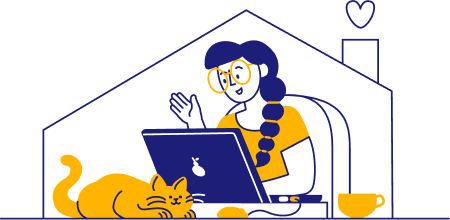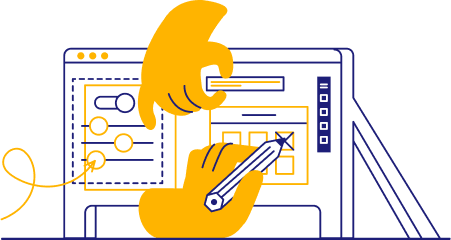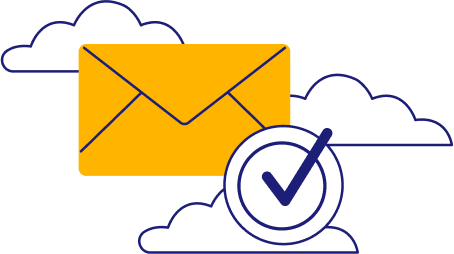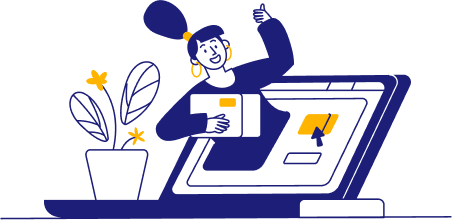If you want to put yourself on someone’s radar, a good way of doing this is to send them a letter of introduction. These types of letters are used when you want to make a connection, whether it’s to introduce yourself, your business, or even one colleague to another.
While it cannot replace writing a cover letter, a letter of introduction can potentially help you get a job. It’s one way to get your foot in the door before anyone else realizes that the door is even open!
Unsure how to write a letter of introduction that gets the reader’s attention? No worries—we’re here to guide you. Check out our tips on writing an effective letter of introduction that gets you your desired result!
Understanding the Letter of Introduction

A letter of introduction is easy to confuse with other types of business-adjacent letters, such as a letter of interest or a cover letter. However, this type of letter is its own thing, and it’s important that you know what you’re walking into before you start writing one.

What is a letter of introduction?
The concept of an introduction letter is exactly what it says on the tin: you’re reaching out to someone to make a connection. In this letter, you’ll include useful information about yourself or your business.
Each letter needs to be highly tailored—as should be cover letters, but for that, you can use a cover letter generator.
While a well-tailored resume and cover letter are used for a specific job that you’re applying for, a letter of introduction is an elaborate “hello.” It can be a way to help you get a job, but it’s also often used for networking purposes in various industries, including business-to-business communication.
You may also send these letters to introduce someone else to a person you already know, such as informing a business partner that you have a new project manager that they should now communicate with.
Long story short, you can send letters of introduction to alert a particular person or company of your (or someone else’s) existence, while a cover letter is something you add to a resume and apply to a job with.

The many faces of introduction letters
There’s no one-size-fits-all explanation for what a letter of introduction is, and that’s simply because it’s such a diverse tool.
Let’s go over the various use cases of introduction letters.
- Job-seeking. This is a good way to display that “proactive” attitude that many employers expect from applicants. In those cases, a letter of introduction can resemble a letter of interest; you can send it to a company to express your interest, no matter if it’s hiring or not.
- Networking. If you admire someone in your industry and want to make a connection, this is your way of saying who you are and why they should include you as part of their professional orbit.
- Educational and professional advancement. These letters have been known to open many doors, both in academic and professional settings. You can use them to introduce yourself to potential advisors, reach out for research opportunities, or contact industry leaders.
- B2B and team introductions. Whether you’ve got your own business and want to make connections with another company (that might later result in doing some business together!) or you want to introduce a new employee to a colleague, a letter of introduction is your friend.
Remember that there’s no hard rule as to when you can or cannot send a letter of introduction. As long as you word it properly, most people will appreciate it and see it as a sign of your interest!
Preparing to Write Your Letter of Introduction

The best thing about letters of introduction is that no one expects to receive them, so you get to cash in on that positive surprise and show that you’re not shy. However, that’s also the worst thing about them, as they can be treated as spam and therefore, completely disregarded.
This is why it’s super important to write an engaging letter of introduction that grips the reader from the get-go, and we’ll show you how down below.

Essential elements to include in every introduction letter
To write a compelling introduction letter, make sure that it contains all the crucial elements that lead to success. Your end goal is to have the person get back to you and respond positively, so it’s not just about following rules but also about standing out from the crowd and writing something attention-grabbing.
First, the greeting. In this type of letter, the greeting pretty much has to be personalized. You’re introducing yourself to a person, so do some digging and try to address them directly to capture their interest!
Follow up with a quick explainer on who you are and why you’re reaching out to them. It’s a good idea to explain the relevance if it’s not obvious, too, such as mentioning an industry connection or your pertinent expertise.
Next, dive into the purpose of the letter and talk more about your background if it’s applicable. It’s totally fine to spend a paragraph just talking about this and giving them some context.
Make sure to also include a call to action. For instance, if you’re hoping they’ll get back to you about a potential interview, mention that you’re looking forward to talking to them. Close the letter by providing your contact details.

Types of introduction letters and their unique features
Letters of introductions come in many different shapes and sizes, so let’s go over their different types and discuss their specific objectives in some more detail.
- Job applications: These are targeted and personalized letters that are meant to serve as a way of introducing yourself to a company you really want to work for. You should discuss your background and achievements to show that you’re the right candidate. You could even power up a resume builder and attach your resume!
- Networking: This one’s less about selling yourself and more about making connections. Introduce yourself and show that you’re familiar with the achievements of the person you’re writing to, but also, feel free to name-drop potential mutual contacts!
- B2B: If you want to introduce your company or services, make your letter all about what you can do for the other company. Spend a little time researching potential pain points so you can address them in your pitch.
- Teaching and educational roles: Here, zone in on your academic interests and credentials. Express the kind of research you’re interested in, your background, and what you hope to bring to a particular institution or placement.
Step-by-Step Guide to Writing an Effective Letter of Introduction

We’ve gone over the elements of a letter of introduction, but how do you weave them together into an effective pitch?
Here’s our secret recipe for writing an irresistible letter that gets you replies!

Starting strong: How to write an engaging greeting and opening line
Starting out on a good note is the key to success with a letter of introduction, no matter the purpose.
Just as you discard various emails if the opening line seems irrelevant, so does everyone else—but if you can get past that initial barrier, they’re much likelier to keep on reading!
The first thing is that the greeting needs to be personalized. Skip the generic “Dear Sir/Madam” or the “Dear [Company] Team.” If you’re introducing yourself, it’s only fair that you know who the recipient is.
The next sentence should focus on capturing the reader’s attention, and first impressions are key here. Personalize the greeting, quickly explaining who you are and why you’ve contacted them, of all people.
For example, you could say: “I’m reaching out because of our shared interest in semiconductor fabs, and as a fellow engineer, I have been impressed by your extensive contributions in that field.”

The body: Showcasing your qualifications, achievements, and intentions
The body of your letter is where you get into the nitty-gritty of who you are, what you’re looking for, and why you’re absolutely worth replying to.
There are different ways to approach this depending on your end goal—after all, networking and job applications are two different beasts—but the general rules stay the same.
Use a couple of paragraphs to elaborate on your work experience and background, and make sure to keep it relevant to your recipient. For instance, if you’re writing to an HR manager at a company you’re eager to be employed by, there’s no reason to go over your hobbies & interests. Instead, make it all about your achievements, qualifications, and job skills.
It’s also a good idea to showcase measurable impact and how your cooperation can have a positive impact on the person or the company.
Let’s say you’re introducing yourself to a renowned professor because you’re hoping to become their research assistant. In that case, try to dig into why your past work impacted the projects you worked on and highlight the value you can bring to the reader.
Lastly, underscore that connecting is of mutual benefit to both of you and not just a favor to you. Lean into mutual connections, knowledge and skills that you can contribute, or services you or your company can provide.

Concluding your letter with a clear call to action
Even if you write the best letter of introduction ever, you don’t want the person to finish reading with a shrug and a “They sound great, so what?”
To avoid that, craft a clear call to action and weave it into your letter so that it looks natural.
Be clear on what you want to happen next—do you want them to call you, meet up with you, or just get back to you? Maybe you just want to connect on LinkedIn so that you can follow their professional development more closely. Make it crystal clear and encourage them to reach out to you.
Make sure that your letter includes contact information and circle back to that in your signoff. Lastly, thank them for their time, and close the letter with a respectful: “Sincerely, [Your Name].”
Leveraging Templates and Examples for Success

Even with all the knowledge already in your arsenal, it can be hard to figure out how to structure your letter. Fortunately, a good template can always help, be it a resume outline or an example of a letter of introduction—so here they are!

Templates for crafting your letter of introduction
Letters of introduction have many uses. Below, we’ll go over the most common ones and give you handy templates to fill in with your own information.
Letter of Introduction for Job Seekers
Use this when you’re interested in a specific company but cannot apply to it directly. It doesn’t replace a cover letter, though. This is just a way to say, “Hey, I want to work here!” even if there are no openings that suit your qualifications.
Here’s an example of an outline you could use:
[Your Name]
[Your Address]
[City, State, Zip]
[Email Address]
[Phone Number]
[Today’s Date]
[Recipient’s Name]
[Recipient’s Title]
[Company Name]
[Company Address]
[City, State, Zip]
Dear [Recipient’s Name],
I am writing to introduce myself as a professional in [your profession/field] with a keen interest in the [specific role or area of work] at [company name]. Having followed your company’s progress and achievements in [industry/field], I am impressed by your commitment to [mention any known company values, projects, or goals relevant to your expertise].
With a background in [mention your background, e.g., marketing, engineering, etc.], I bring [number of years] years of experience, specializing in [specific skills or areas of expertise]. My recent projects include [briefly describe a relevant project or achievement], which [explain how it added value, solved a problem, or achieved a goal], underscoring my capacity for [mention a key quality or ability, e.g., problem-solving, strategic planning, etc.].
I would be thrilled to explore how my background, skills, and interests align with the needs of your team. I am looking forward to the possibility of discussing this exciting opportunity with you. Please find my resume attached for more detailed information about my experiences and achievements.
Thank you for considering my introduction. I hope to hear from you soon to discuss how I can contribute to [company name]. Feel free to contact me at [your phone number] or via email at [your email address].
Warm regards,
[Your Name]
Business Letter of Introduction Template
This is the ideal way to introduce yourself, your services, or your business to potential clients, be they individuals or other companies. It’s not strictly a sales pitch, but it’s not far removed from it; your goal is to outline why your services or products could be useful to the recipient or their business.
Here’s an example of what that might look like:
[Your Name]
[Your Job Title]
[Your Company Name]
[Company Address]
[City, State, Zip]
[Email Address]
[Phone Number]
[Today’s Date]
[Recipient’s Name]
[Recipient’s Title]
[Company Name]
[Company Address]
[City, State, Zip]
Dear [Recipient’s Name],
I hope this finds you well. My name is [your name] and I’m reaching out to introduce you to [company name]. We’re a [brief description of your business, including its greatest achievement] and I believe that our [products/services] align perfectly with the [mission/scope] of [recipient’s company]. The purpose of my emailing you is to explore the possibility of potential cooperation.
[Your company] has been around since [year], and during that time, we’ve established ourselves as market leaders in [industry]. We specialize in [briefly describe your core business activities and strengths]. Our work has been featured in/contributed to [insert proof of accomplishments, such as companies you worked with or a magazine that described your work]. [Your company]’s expertise in [an area that’s useful to the recipient] can help [recipient’s company] scale your business and achieve unprecedented growth.
I am convinced that a partnership between [your company] and [their company] could be mutually beneficial, enabling you to [mention a problem area/growth area that could be positively impacted for the recipient].
Would you be available for a brief call or meeting to discuss this further? I am flexible with my schedule and can adjust to a time that works best for you.
Thank you for considering working with [your company]. I am looking forward to the possibility of working together.
Best regards,
[Your Name]
[Your Job Title]
[Your Company]
[Contact Information]
Networking Letter of Introduction Template
This one is a bit different than the two above. After all, you don’t reach out to someone for networking purposes in order to immediately get hired or sell your services to them. However, it can happen in the long run—and for now, you just want to be on their radar and mutually benefit from connecting.
Here’s an example of a letter of introduction template that can be used for more effective networking. Remember to modify it for LinkedIn messages, as things like your address will not be necessary there.
[Your Name]
[Your Current Position/Role]
[Your Company/Organization (if applicable)]
[Your LinkedIn Profile/Website]
[Email Address]
[Phone Number]
[Today’s Date]
[Recipient’s Name]
[Recipient’s Title]
[Company Name]
[Recipient’s Address (if applicable)]
Dear [Recipient’s Name],
I have been thoroughly impressed by your achievements and/or contributions in the field of [industry], and as an avid follower of your work, I’m reaching out to introduce myself. My name is [your name], and I’m a [your work or academic title] at [company/school]. I wanted to express my admiration for your work as well as explore the possibility of connecting with you.
As I share your interest in [field], and also contribute to it on a regular basis with projects such as [project/paper, initiative, etc.], I believe that exchanging ideas could be mutually beneficial. I am keen to learn more about your approach to [specific project or subject], in particular, and would be eager to share my own experiences in [area].
I completely understand that an expert of your caliber would have a busy schedule. However, I would be grateful for the possibility of a chat, be it through a quick video call or a coffee in [city]. I am especially curious about your work on [project] and would love to learn your perspective on the matter.
Thank you for considering my connection request. I am looking forward to the possibility of joining your network and learning from your vast experiences. If you’re interested in a chat, please let me know a time and format that works best for you, and I will do my best to accommodate.
Best regards,
[Your Name]
[Your Position/Role]
[Your Contact Information]
[Optional: Attach your business card or link to your professional portfolio]
Educational and Teaching Job Letter of Interest Template
Educational letters of interest can be twofold. You might want to send one due to being interested in a particular internship or research opportunity, or even just a straight-up job. However, they’re also often sent out for networking purposes.
Below, we’ll show you what to say if you’re subtly applying for an educational opportunity. For networking purposes, our earlier template above will work great!
[Your Name]
[Your Current Position/Role, if applicable]
[Your Address]
[City, State, Zip]
[Email Address]
[Phone Number]
[Today’s Date]
[Recipient’s Name]
[Recipient’s Title]
[Recipient’s Institution]
[Recipient’s Address]
[City, State, Zip]
Dear [Recipient’s Name],
My name is [your name] and I am currently a [your current role] at [institution or organization, such as a high school or a college]. I have been following the academic success of [institution] for many years, and as it has been a source of great inspiration in my own educational journey, I’m reaching out to express my strong interest in the [position].
In my current role at [Your Current Institution or School], I have successfully [mention a significant achievement or project related to education]. My particular academic interests lie in [mention research area or field, or teaching methodology], and to that end, I have completed [mention degree or coursework]. I am on a never-ending journey for knowledge and believe that my drive and skills would be an asset to [institution].
I would be thrilled to bring my expertise in [mention any relevant skills or areas] to your esteemed institution. I am looking forward to the possibility of discussing this exciting opportunity with you in more detail.
Thank you for considering my application. I am looking forward to the opportunity to contribute to [institution].
Best regards,
[Your Name]

Real-world examples of effective letters of introduction
Having a useful template is one thing, but seeing a real-world example of a letter of introduction that actually did the trick can be even better, so that’s what we’ll show you below.
(Hint: Remember, if you’re attaching a resume, don’t forget to run it through a resume checker!)
Job Application Letter of Introduction
Martina Joseph
123 Pretend Ave
Anytown, CA 12345
[email protected]
123-456-7890
April 7, 2026
Ms. Keira Basinger
Hiring Manager
Intel Corporation
123 Pretend Rd.
Anycity, NY 54321
Dear Ms. Basinger,
I hope this finds you well. My name is Martina Joseph, and I have been inspired by Intel’s groundbreaking developments in the field of CPUs and NPUs for years—in fact, Intel is what inspired me to become a software engineer. Now, with over 5 years of experience as a Java developer, I am reaching out to express my immense interest in working with Intel.
I spent most of my career researching and developing applications optimized for performance and scalability. In my current role with AMD, I led a project that resulted in a 58% reduction in processing time for our core product by integrating innovative machine learning algorithms similar to the techniques employed in Intel’s latest NPU architectures.
My lifelong interest in computer science and in-depth understanding of machine learning and artificial intelligence position me to be an asset at Intel.
I would appreciate the opportunity to discuss this more in a call or meeting at your earliest convenience. Please feel free to reach out with any questions, and I thank you for your consideration.
Sincerely,
Martina Joseph
Business-to-Business Letter of Introduction
Jonas Stefansson
CEO
Forever Fit Tech
123 Pretend Ave
Anytown, CA 12345
[email protected]
123-456-7890
December 1, 2026
Ms. Karen Rodriguez
CEO
Peloton
123 Pretend Rd.
Anycity, NY 54321
Dear Ms. Rodriguez,
I hope this message finds you well. My name is Jonas Stefansson, and I am the CEO of Forever Fit Tech, a company that specializes in advanced health-tracking software. Our tech solutions helped thousands of people improve their lives, and I am reaching out to discuss a potential collaboration with Peloton so that we can expand the reach of both of our companies even further.
At Forever Fit Tech, we’ve developed comprehensive wellness solutions that integrate seamlessly with fitness equipment to enhance user experience and engagement. We work with a team of industry-leading experts who specialize in designing apps that offer health-tracking solutions, challenges, and community-driven engagement. We have worked with several fitness influencers of international fame, such as Liam Land, to spread our message and diversify our product lines.
We respect Peloton’s commitment to transforming the fitness industry through innovative solutions, and we are excited about the prospect of collaborating with your team. We believe that by integrating our health-tracking software with Peloton’s cutting-edge equipment, we can create a more comprehensive fitness experience for users worldwide.
Thank you for considering my offer. I would love to discuss this with you over a call. Please let me know a suitable time for you and my team and I will prepare a comprehensive offer for you to consider.
Sincerely,
Jonas Stefansson
CEO
Forever Fit Tech
123-456-7890
Networking or Team Letter of Introduction
Priva Shah
Junior Data Scientist
Insight Analytics and Science
https://priyashah.com
[email protected]
123-456-7890
January 23, 2026
Zachary Steinbrenner
Head of Data Analytics
Google
123 Pretend Rd.
Anycity, NY 54321
Dear Mr. Steinbrenner,
My name is Priya Shah, and I have long been following your contributions in the fields of data science and analytics. As a fellow data scientist, I would love to connect and explore possibilities for collaboration and networking.
I started my journey with data science by completing a master’s degree in Data Science and Analytics from the University of Michigan, where I specialized in predictive modeling. This provided me with a solid foundation in computational techniques which now help me excel in my role at Insight Analytics and Science.
Your recent work on developing the advanced predictive modeling system for urban planning has been particularly inspiring to me, and the impact of it, as well as that of your team, is clearly felt through the reduction of traffic congestion in the area. This project mirrors my own interest in the clever use of data as a tool to solve real-world problems, particularly in the realm of urban sustainability.
Connecting with you would be a fantastic opportunity that would allow me to learn from an industry expert I admire. In return, I should be happy to contribute to any open-source projects your team might be working on as a way to develop my skills and lend my time to a cause I believe in.
Thank you for your consideration. I would be delighted to arrange a meeting or a call to discuss this at your convenience.
Sincerely,
Priya Shah
123-456-7890
Letter of Introduction for Teaching Positions
Nikos Mitrakas
[email protected]
123 Pretend Rd.
Anycity, NY 54321
123-456-7890
September 19, 2026
Dr. Mila Rosenberg
Principal
Lincoln High School
123 Pretend Rd.
Anycity, NY 54321
Dear Dr. Rosenberg,
I trust that this message finds you well. My name is Nikos Mitrakas, and I used to be a student at Lincoln High nearly 10 years ago. Now, with my own academic journey nearing completion, I am reaching out to express an immense interest in returning to the institution that shaped my educational path, this time in the role of a chemistry teacher.
Lincoln High and the excellent guidance of Mr. Janecki, spurred in me an insatiable thirst for knowledge and a love for biochemistry that inspired me to pursue a master’s in Chemistry from Boston University. Having also completed a second degree in Education, I feel ready to help shape young minds at the very school that ignited my passion.
In my previous role at Brighton Secondary School, I focused on helping my students learn the complexities of chemistry. As a result, they achieved a consistent 20% increase in their standardized test scores in the subject. I also led a team of students to win a national competition in 2026, which is now one of my proudest achievements.
I would love to discuss the opportunity to discuss how my skills in curriculum development and engaging teaching could contribute to Lincoln High. Please let me know a time and date when it might be possible for us to meet.
Thank you for your consideration, and I look forward to hearing from you.
Best regards,
Nikos Mitrakas
Maximizing the Impact of Your Letter of Introduction

You only get one shot at making a fantastic first impression, so before you hit that enticing “Send” button, here’s how to make sure that your letter of introduction is really the best it can be.

Pro tips for an impressive letter of introduction
Here’s a bite-sized guide to writing a letter of introduction that the recipient will be floored by:
- Tailor it to the recipient. No one likes receiving spam mail out of nowhere, and if your letter is generic, that’s what it’s going to be taken as. Address the recipient by name and express interest in them and their work in the very first paragraph.
- Keep it professional but not boring. Talking as if you swallowed a thesaurus is unwelcome, even if you’re writing to a person who holds a doctorate in English Literature. Keep your tone professional but engaging.
- Be concise. Keep your letter direct and to the point. We recommend sticking to 3 to 4 paragraphs for the best effect.
- Proofread. Proofread once, and then do it some more. An ill-timed typo can ruin all your efforts.
The Path Forward: Using Your Letter of Introduction to Open Doors

Now that your letter of introduction is as perfect as it can be, it’s time to fight a different sort of demon—your own confidence.
Look, we know it’s hard to put yourself out there—we’ve all been there. But, if you’ve read through your letter time and time again and perhaps slept on it for a night to be extra sure, there’s nothing more to be done than to just send it.
March in there with confidence and introduce yourself. It might get you a cool new job, a business collaboration that helps you scale your company to new heights, or help you connect with that pro expert you only know from LinkedIn posts.
In any case, if you don’t try, you’ll never know—so go ahead and send your letter!
Letter of Introduction FAQs

The general idea of an introduction letter is that it’s meant to introduce someone or something to a person or an organization. Unlike other types of correspondence, such as cover letters or letters of interest, letters of introduction serve as the “Hello” that opens the door to something more.
For a successful cover letter or letter of introduction, personalize the first paragraph to the maximum. Include a mention of what interests you in that particular company or person, and then, tie that into how it perfectly aligns with your own experience.
No, it’s not the same, but it can be similar. Letters of introduction can sometimes be sent out as a way to apply for a job that hasn’t been officially listed. In such cases, they’re similar, but in others, they can be vastly different. Cover letters are always targeted at a particular job that you’re applying to.
You absolutely can. While it’s common for another person to introduce you to a new contact, you can also introduce yourself. If you have a mutual contact, it’s not a bad idea to refer to them in your letter, as that will build the reader’s confidence in connecting with you.
If you’re serving as the person who introduces someone to a person you already know, make the new contact the focus of the letter. You already know your colleague or business partner, so it’s okay to keep it less formal.
Drive a connection to something you share with your contact, then go on to introduce the person you’re writing about. Discuss their job title and responsibilities, and make sure to finish with a clear call to action that tells your colleague what you’d like them to do once they’ve been introduced.




